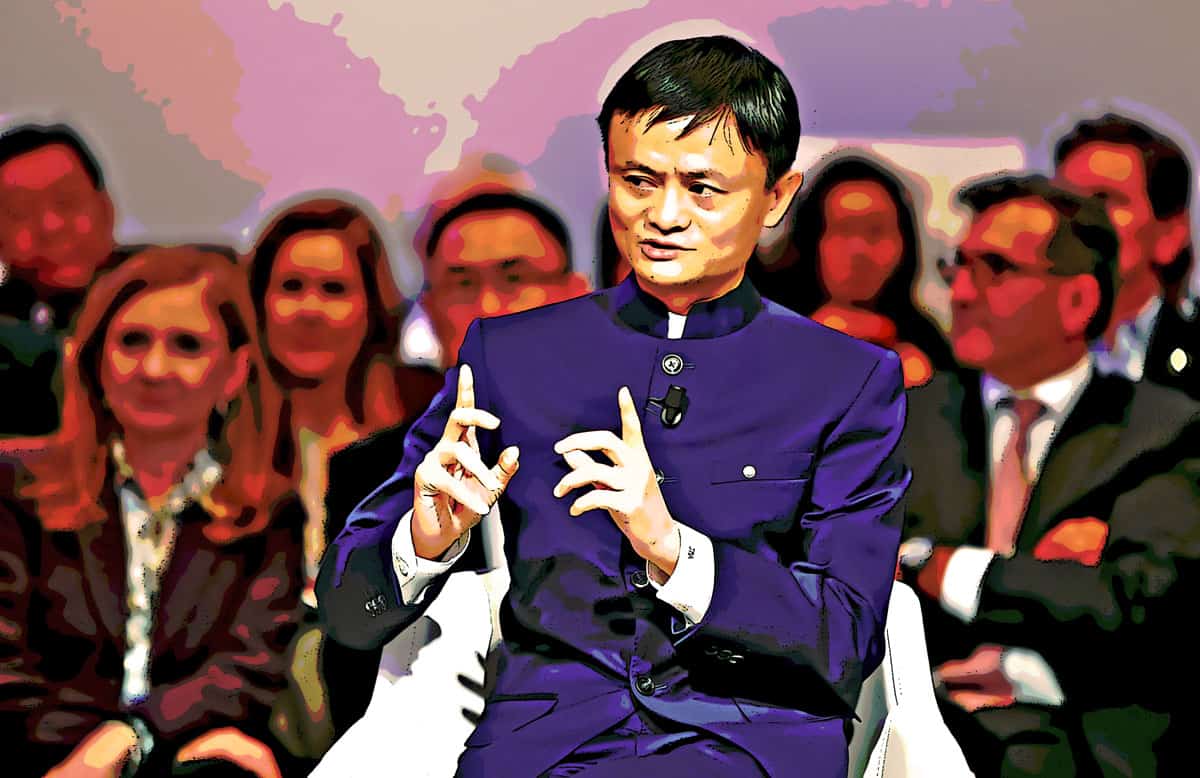Chinese tech giant Alibaba Group’s founder Jack Ma said digital currencies are likely indispensable to the financial system in the decades to come. Alibaba affiliate Ant Group — whose imminent IPO could be the largest in history yet — is now gearing up for that future through patents related to China’s new DCEP digital yuan.
“Digital currencies may play an important role in building the type of a financial system that will be needed in the next 30 years,” Ma said at the recent Bund Summit in Shanghai, according to Bloomberg. “Digital currency could create value and we should think about how to establish a new type of financial system through digital currency.”
Ma did not specify whether he was referring to cryptocurrencies such as bitcoin or central bank digital currencies (CBDCs), which a number of countries around the world are now racing to develop.
The literal translation of the word he used is “digital currency”. In the Chinese culture, the meaning is up for interpretation. That’s pretty much as far as he can push without getting into serious trouble for such a speech. He did push a lot of buttons though. Respect!
— CZ Binance (@cz_binance) October 25, 2020
In his remarks, the billionaire behind Ant Group’s Alipay, the popular mobile payments platform, also railed against global financial regulations that he says has stifled innovations.
Ma’s comments are coming as Ant Group prepares for a massive initial public offering that will be jointly listed in the Shanghai as well as Hong Kong stock exchanges. The IPO date in Hong Kong is scheduled for Nov. 5. A date hasn’t been officially announced for the Shanghai listing but it is expected to be on the same day as the Hong Kong IPO.
According to a document released by the Hong Kong Stock Exchange this week, shares of Ant Group could be priced at around US$10.30, meaning that the company could raise around $34.5 billion and be worth about $310 billion. That would place Ant Group’s market value among some of the world’s largest banks.
In comparison, affiliate e-commerce company Alibaba raised US$25 billion in its 2014 IPO on the New York Stock Exchange, and Saudi Aramco last year — until now the world’s largest IPO — raised US$29 billion.
China’s DCEP digital currency
Despite Ma’s remarks against government regulations, his comments on digital currencies and Ant Group’s approach toward DCEP — shown through the company’s patent filings — reflect that a CBDC is integral to China’s financial future and the company is already preparing to be a part of it.
Earlier this month, China ramped up testing of its new CBDC, the Digital Currency Electronic Payment (DCEP) by distributing 10 million digital yuan (US$1.4 million) to 50,000 people to spend at over 3,000 retailers and restaurants.
Delivered via electronic “red packets” in a dedicated mobile phone app to lottery winners in the Southern Chinese city of Shenzhen, the digital currency wallets containing 200 e-yuan bore close similarities to Alipay and Tencent’s WeChat Pay’s red packet features. These apps’ red packets are commonly used as a digital version of the popular Chinese gifting custom.
Mobile payments are nearly ubiquitous in China through private platforms such as Alipay, reaching 277.4 trillion yuan (US$39.07 trillion) in 2018, according to the People’s Bank of China.
Alipay’s patents for DCEP digital yuan
While Alipay does not currently use the DCEP, it has already filed a number of patents this year related to the digital yuan, according to local media site Interchain Pulse.
The first two patents published show that Alipay may be a secondary issuer of a digital currency as a third party agent. The filings specify a method and device for executing digital currency transactions through electronic equipment.
Another patent details methods for controlling digital currency transactions. That patent shows that accounts may be restricted depending on agreements between regulators and the account operators via controls of users’ wallets on the company’s servers.
“If a supervisor finds that the target account is suspected of violating laws or regulations in economic activities, it can send account restriction instructions to the wallet server,” reads the patent’s description. These accounts can be shut down immediately based on rules determined by regulators and enforced by Alipay.
These controls over the digital currency differentiate the DCEP from normal fiat currency or digitized representations of the yuan currently used on platforms like Alipay, as they allow regulators greater access and control to how the money is spent, and when.
The next patent lays out how Alipay would be able to open different types of digital currency wallets depending on user behavior.
Upon a user’s request to create a new wallet, Alipay would obtain user behavioral data based on the user’s identification. Depending on the results, Alipay would calculate the type of digital currency wallet suitable for the user and open the relevant wallet.
Alipay leads in mobile payments in China with 55.4% market share, according to a recent report from the iResearch Consulting Group. Tencent’s Tenpay, which owns WeChat Pay and QQ Wallet, is second at 38.8% market share. Alipay’s market dominance and current collection of user data including behavioral, biometric, banking and phone information may give the company a large cache of information to assess how users use digital currencies.
Despite these DCEP-related patent filings, Ant Group has been cautious in publicly discussing how the company would integrate China’s new digital currency into its payment technology.
“We do not have sufficient visibility as to the impact of the DCEP on consumers’ payment behavior and the payment industry,” the company said in its IPO prospectus. “It is not clear how the DCEP will fit into or change the current digital payment industry landscape.”




